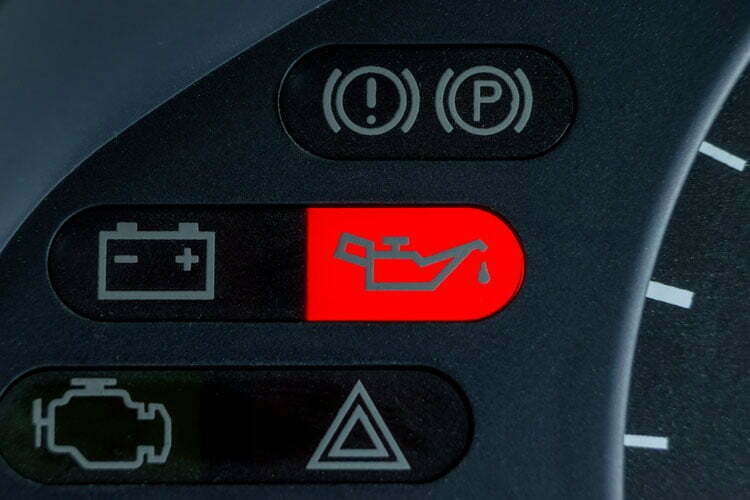What You Should Know about Oil Change for Auto Repair

If you own a car or truck, oil changes are a routine part of car maintenance. Your vehicle can’t run without engine oil. However, over time, the oil quality diminishes. It becomes dirty. Its additives will become depleted. In some cases, the oil may even leak out–a common problem for older cars. Old oil as it becomes dirty and sludge-like can get into the vehicle’s engine and actually cause damage to engine parts. In other words, dirty oil isn’t good for your car’s engine. That’s why it’s crucial for auto owners to maintain the well-being of their vehicle’s engine with frequent oil changes.
What Does Engine Oil Do?
Engine oil, sometimes referred to as motor oil, helps ensure that engine parts like pistons and valves operate smoothly and prevent engine wear. Engine oil helps reduce the wear of engine parts by minimizing friction. Motor oil helps transfer heat, so it supports the engine’s cooling system, reducing the risk of overheating from too much engine heat. Proper oil filled to the optimal oil level helps car owners keep their vehicle and its mechanical parts operating properly and reduces breakdowns.
Choosing the Right Car Oil
The best way to determine the right car oil for your vehicle is to check the owner’s manual. You can choose synthetic oil or full synthetic oil or conventional oil. The manual will list a recommended oil as well as how often owners should get oil changes. Many of the old rules regarding oil changes are no longer recommended. For instance, it used to be a typical rule of thumb to get an oil change every 3,000 to 5,000 miles. Most auto manufacturers, today, suggest getting the oil changed every 5,000 and 7,000 miles driven.
Synthetic Oil
Synthetic oil is created in a lab. It features artificially created oil molecules and, often, includes a base of highly refined crude oil. Full synthetic motor oil does not include that crude oil base but, instead, features all artificial molecules. Synthetic oil offers many advantages over conventional oil because it’s lab created for improved performance. For instance, it may improve fuel economy. Many modern vehicles use this type of oil.
Conventional Oil
Conventional oil comes in various grades, but it all is derived from crude oil. It features different levels of viscosity. Again, the owner’s manual for your vehicle will recommend which oil to select. It’s important to use the right oil for your vehicle, so follow the auto manufacturer’s recommendations.
When Should You Change Your Oil?
As mentioned, many auto manufacturers recommend having an oil change every 5,000 to 7,000 miles driven. Conversely, if you don’t drive that many miles, you should aim to change your oil every six months. This is general information. It’s important to follow your manual’s recommendation. The timeframe for getting an oil change is also dependent on the type of oil in question. Synthetic oils may need to be changed slightly less frequently.
It’s also important for car owners to ensure that their car has enough oil. Older cars may leak oil, for example. Check your oil to determine that it’s at the proper oil level. If not, you need to add oil or get an oil change to ensure it has enough oil to support the car’s efficient operation. If your car’s oil light comes on, it may be a reminder to get an oil change or that you don’t have enough engine oil.

Auto Oil FAQs
What do I need to know for an oil change?
Car owners need to know what type of oil to use for an oil change. If you intend to change the motor oil yourself, which is not an overly difficult task (though it can be a messy one), you need to know what type to purchase at an auto center store. If you take your car to a service center or a auto repair shop for an oil change and other auto maintenance, the staff can often recommend the ideal oil for your make and model; however, as the vehicle owner, you have the final say for the car oil choice. Refer to your owner’s manual to determine what type of car oil to use.
What does an oil change service include?
An oil change service includes an oil change, but it may also include lubrication, filter change, tire pressure check, antifreeze check, fluid level inspections, and even a tire rotation. Many service providers will also offer additional services such as window wiper replacement. Most service centers offer a menu of their available oil change services.
What else should be done in association with an oil change?
Changing the filter is an important part of car maintenance and most car owners will have their’s changed with each or every other oil change. You can ask your service provider about the filter’s condition. They can recommend a new oil filter if if yours requires a change. Ask your auto repair shop or oil change service if they have any other recommendations for your vehicle’s maintenance.
What should I ask for with an oil change?
Ask your service provider about what’s included with your oil change as well as the cost of the service. This may vary between one service provider and another. You may also wish to ask–though you should know–what oil is being used and what type of filter is being offered. You can also ask the maintenance team about when you should get your next oil change.
